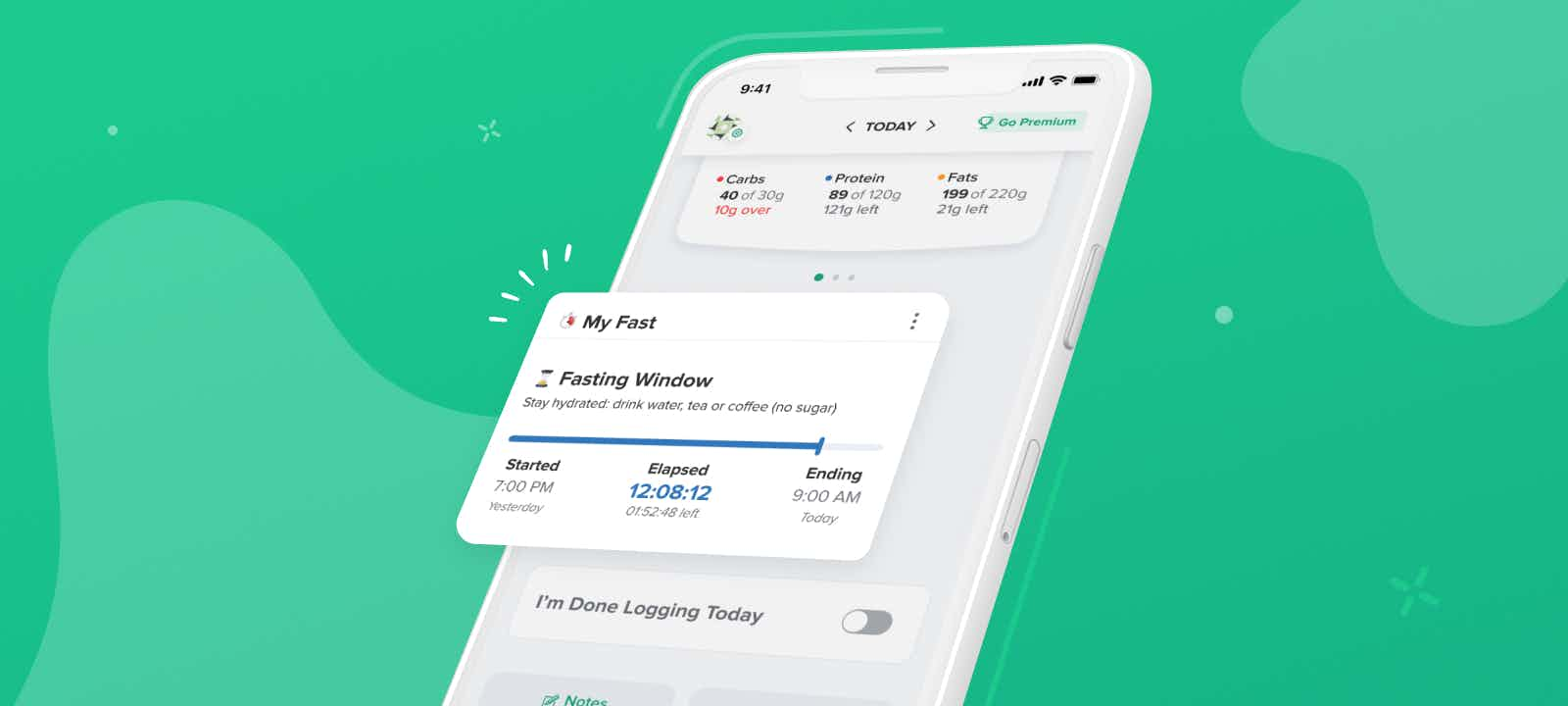Why Can I Not Lose Weight on Keto Diet
If you're not losing weight on the Keto diet, it can be discouraging. Isn't Keto supposed to be effective for weight loss?
It can be, but minimizing carbs isn't a guaranteed formula for shedding pounds. If you want to promote sustainable fat loss, there are many factors to consider.
For instance, it may be harder to overeat Keto-friendly foods than high-carb refined foods, but it's not impossible. Once you pop a bag of cashews, it's hard to stop.
Beyond overeating, there are more subtle reasons—like stress and sleep issues—why you may be struggling to lose fat on Keto.
In this article, we'll troubleshoot Keto weight loss and get to the bottom of what might be holding you back. First, though, does this diet work?
You can't walk by a magazine rack these days without seeing a headline like: I lost 23 pounds on Keto... here's how I did it.
Minus the obligatory exaggeration and airbrushing, many of these anecdotes are probably true. But the more convincing data comes from the peer-reviewed literature.
Here are a few published examples:
- Obese individuals lost an average of over 30 pounds after 24 weeks of Ketogenic dieting. They had lost significant weight at 8 and 16 weeks too.[*]
- Military personnel showed a 43% reduction in belly fat after 12 weeks on Keto.[*]
- A 6-month Keto diet promoted greater fat loss than a low-fat diet in obese women.[*]
There are dozens of more high-quality studies to choose from, but these should give you a flavor. But why is Keto effective for weight loss?
There are two main explanations why Keto helps with weight loss:
- By reducing hunger and cravings
- By keeping the hormone insulin low
The first reason makes sense once you learn that a low-carb diet reduces hunger hormones like ghrelin and neuropeptide Y.[*] Less hunger means less overeating on Keto, which in turn leads to weight loss.
Keto also gets folks off the blood sugar rollercoaster—the ups and downs of high-carb dieting that influence mood, energy, and appetite. By eliminating sugar, you eliminate a huge source of empty, blood-sugar spiking calories.
Insulin is the second reason. Why? Because keeping carbs low keeps the hormone insulin low, then low insulin facilitates the breakdown of body fat. This is called lipolysis.[*]
Simply put, keeping insulin low helps you access body fat for energy. Then you can run off your own supply and lose fat sustainably.
Let's troubleshoot now. Here are the main factors that can stymie weight loss on Keto.
If you had to give one dictum for success on Keto, it would be this: minimize carbohydrates.
Minimizing carbs minimizes insulin, allowing you to enter the fat-burning state called ketosis.
But carbs are sneaky. They're in soups, sauces, dressings, and a variety of vegetables that you might not suspect.
Not all carbs are off-limits, by the way. Fiber and sugar alcohols don't raise your blood sugar, so they don't count. That's why you track net carbs on Keto. (Net carbs = total carbs - fiber - sugar alcohols).
To confirm your net carb intake is sufficiently low enough to be Keto (usually 20 or 30 grams per day), use a macro tracker like Carb Manager.

If you want to understand how weight loss occurs, you need to understand energy balance. Energy balance is the balance between energy (calories) coming in through food vs energy expended through active and resting metabolic processes.[*]
To lose weight, you want to maintain a negative energy balance. In other words, you want to consume slightly fewer calories than you expend.
This often happens naturally on Keto, but not always. Even on a high-fat diet, it's possible to overeat.
Nuts are the biggest offender. For example, a half-cup of almonds (which fits in your hand) contains over 400 calories.
If you're not losing weight on Keto, track your calories with the Carb Manager app and see where you might cut down to promote negative energy balance.
Sleep deprivation hampers weight loss in several ways.
First, short sleep increases the hunger hormone, ghrelin.[*] That's why we tend to overeat in a sleep-deprived state.
Second, poor sleep impairs insulin function, hindering fat-burning.[*]
Finally, sleep loss elevates cortisol, a stress hormone that blocks fat loss.[*]
Let's talk more about cortisol. It's an adrenal hormone released during times of stress.
Cortisol isn't all bad. It wakes you up in the morning, for starters.
But a dump of stress-induced cortisol raises blood sugar and insulin levels—and that won't help you burn fat.[*] The more you minimize unnecessary stress, the easier weight loss will be.
To lose fat without losing muscle on Keto, aim to get plenty of protein.
Most people don't get enough. They hear "high-fat Keto diet" and picture a stick of butter.
But in reality, your Keto plate should have about equal volumes of protein and fat. A gram of fat contains more than twice the calories as a gram of protein, so you probably need less fat than you think to hit your macros.
As a bonus, protein fills you up. This satiety factor is a big reason why high-protein diets appear to be effective for weight loss.[*]

Today, we have 24/7 access to food. But these aren't the conditions humans evolved to thrive in.
We evolved to oscillate between periods of fasting and feeding. By taking a break from food, we rev up the metabolic machinery that burns fat and makes ketones.
This doesn't mean you need to fast for days on end. But a simple overnight fast of 12 or 13 hours is likely beneficial for almost everyone.
Not only do you snack less, but you also give your body time to fat-adapt. Plus you promote a healthy circadian rhythm, the 24-hour wake-sleep cycle that influences most aspects of human health, including body weight regulation.[*]
While certain spirits, wine, and even some very low-carb beers may seem like they fit your Keto macros, they may be temporarily knocking you out of ketosis and hindering progress.
If you're feeling stuck on Keto and a "low carb" cocktail is more than a once-in-a-while treat, you may want to experiment with cutting back on alcoholic beverages and see if anything changes.
And when you do indulge, make sure to track that beverage in Carb Manager to see if it fits your macro goals.
We already mentioned over-consuming calories, but Keto sweets and snacks deserve a mention of their own. When foods taste good, it's much easier to over-consume, and even a Keto diet isn't immune to this.
If you find yourself reaching for store-bought Keto treats like chocolates, cookies, "sugar free" candy, sodas, and the like on a regular basis, you may want to check-in around why you're doing this, and if it's truly necessary.
Are your meals not satisfying enough? Try eating more protein, veggies, or healthy fat at meal time.
Are you just a habitual snacker, maybe out of boredom or when you're feeling stressed or emotional? Ask yourself if you're truly hungry next time you're reaching for a treat.
Some of the "Keto-friendly" sweeteners available do have a mild blood sugar spike effect in some people, which could knock you out of ketosis, and/or spike insulin levels, resulting in decreased fat burning.
If you're curious about this and have access to a glucose or ketone monitor, testing the effects of these foods can let you know if they're hurting your progress in more ways than just adding extra calories.
Give the prior section a quick review. Could one or more of these factors be hindering your weight loss on Keto?
A great place to start could be with a 12/12 intermittent fast, which can help you cut down on snacking hours, manage insulin levels, and potentially result in regulated circadian rhythms and better sleep.
You don't need to fix everything at once, but if you haven't already, you can take one simple action: download the Carb Manager app.
Using Carb Manager, you can easily track the factors that govern success on Keto: carbs, calories, protein, fasting, sleep, ketone and glucose levels, and more.
All this occurs in the warm embrace of a supportive community. Come see what it's all about.
Why Can I Not Lose Weight on Keto Diet
Source: https://www.carbmanager.com/article/xtqszheaacmacfbb/why-am-i-not-losing-weight-on-keto/